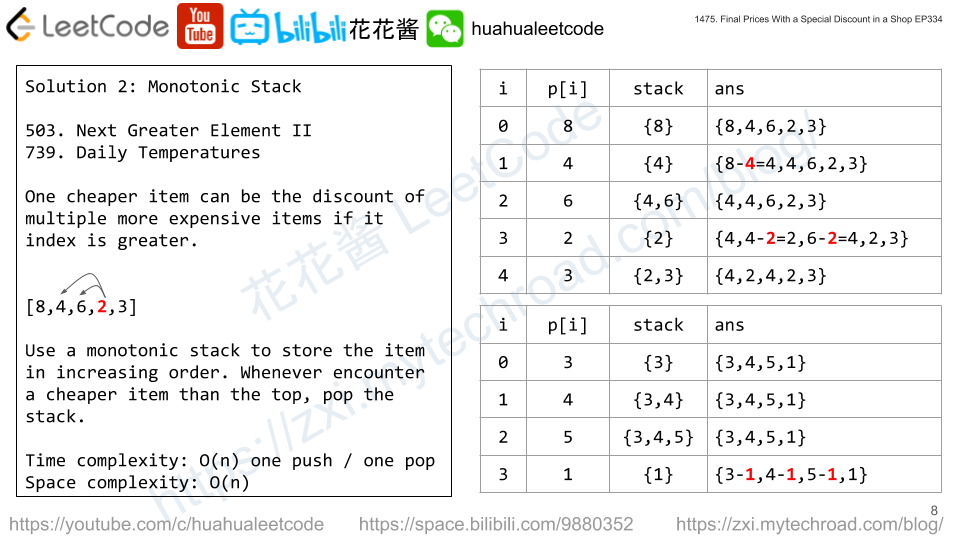Given an integer n and an integer start.
Define an array nums where nums[i] = start + 2*i (0-indexed) and n == nums.length.
Return the bitwise XOR of all elements of nums.
Example 1:
Input: n = 5, start = 0 Output: 8 Explanation: Array nums is equal to [0, 2, 4, 6, 8] where (0 ^ 2 ^ 4 ^ 6 ^ 8) = 8. Where "^" corresponds to bitwise XOR operator.
Example 2:
Input: n = 4, start = 3 Output: 8 Explanation: Array nums is equal to [3, 5, 7, 9] where (3 ^ 5 ^ 7 ^ 9) = 8.
Example 3:
Input: n = 1, start = 7 Output: 7
Example 4:
Input: n = 10, start = 5 Output: 2
Constraints:
1 <= n <= 10000 <= start <= 1000n == nums.length
Solution: Simulation
Time complexity: O(n)
Space complexity: O(1)
C++
|
1 2 3 4 5 6 7 8 9 10 |
// Author: Huahua class Solution { public: int xorOperation(int n, int start) { int ans = 0; for (int i = 0; i < n; ++i) ans ^= (start + 2 * i); return ans; } }; |
